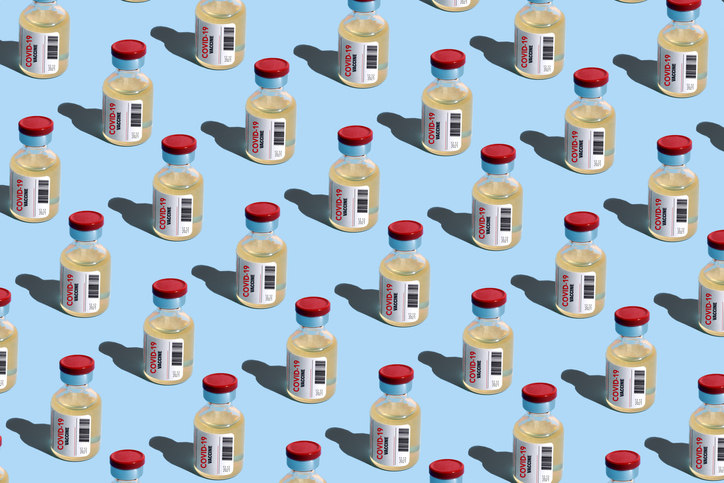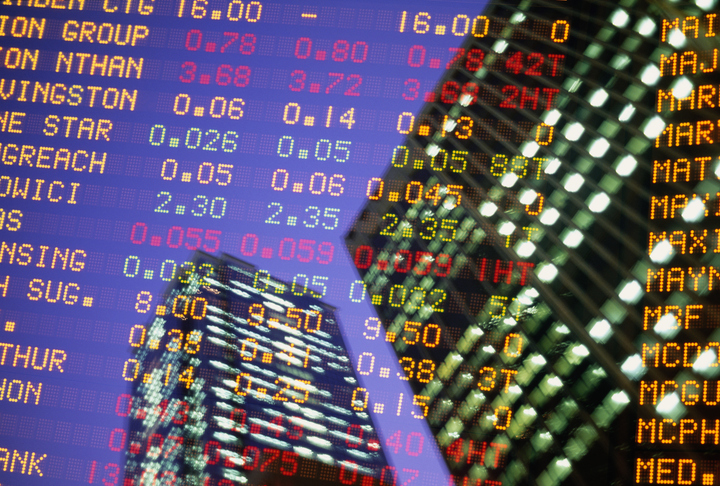Vaccination Delays Put Global Rebound at Risk
Slipping timetables for inoculation campaigns mean return to normal could get pushed back for many countries
Timetables for vaccinating enough people to effectively curb Covid-19 are slipping in many countries, raising fears that a large portion of the world will still be battling the pandemic and its economic effects well into 2022 or beyond.
While the U.S. and some other mostly small countries are making progress toward vaccinating most of their populations by late summer, health experts and economists are concluding that much of the planet—including parts of Europe, Asia and Latin America—face a longer slog.
Places from Germany to Mexico are running into serious problems sourcing sufficient vaccines. Other countries with low caseloads are less pressed to start vaccination campaigns and aren’t eager to reopen borders anytime soon.
At the current rates of vaccination, only about 10% of the world would be inoculated by the end of the year and 21% by the close of 2022, UBS says. Just 10 countries are on track to vaccinate more than one-third of their population this year.
The UBS data includes hard-hit middle-income countries such as South Africa where vaccination rates are expected to be painfully slow, though some countries it measured are expected to increase the pace of vaccinations soon.
But richer regions such as Europe are also facing delays. European officials in recent days watched as their goal of vaccinating 70% of the population by summer looked unachievable after doses ran out in some places, with just 2% of European Union residents covered so far.
The differing pace in vaccine rollouts world-wide raises the prospect of divergent economic fortunes for the world’s main economic blocs, at least in the near term. The U.S. economy could grow by 5.1% this year, according to International Monetary Fund forecasts, but recoveries of the eurozone and developing economies have become more uncertain given vaccination delays.
The U.S. and a few other countries could wind up enjoying many benefits of herd immunity but still be unable to fully mend their economies because they are waiting on other places to catch up. With borders shut globally, some businesses even in vaccinated countries would have to rely on domestic demand.
“So long as the pandemic terrorizes part of the world, normality will not be restored anywhere,” said Erik Nielsen, chief economist at UniCredit Bank.
Uneven vaccine distribution also means that Covid-19 could keep circulating for years, especially in nations such as Brazil and South Africa, where new infections are vastly outpacing inoculations. Both have become breeding grounds for more infectious new strains. In time, virologists expect the virus could mutate—in particular, modifying the shape of its outer protein spikes—an outcome they fear might ultimately render our current vaccines less effective.
Many scientists and policy makers predicted immunization programs would take a long time. Still, the unusually rapid development of vaccines raised hopes that 2021 would mark a return to normal for most of the world. Economists began upgrading their forecasts.
Global growth is still expected to be strong this year, and residents of many countries including the U.S. will undoubtedly see restaurants filling up and other signs of progress. The recovery is already so strong in some places that supplies of semiconductors are running short.
The U.S. and U.K. also experienced some early delays rolling out vaccine campaigns, only to see distribution pick up as snags were worked out.
Still, the outlook is growing considerably more uncertain elsewhere.
Borders are closing across much of Europe. New Zealand Prime Minister Jacinda Ardern said last week the country would continue to bar international visitors through most of 2021. A senior Australian health official recently made a similar prediction, in part because it isn’t clear whether Covid-19 vaccines prevent transmission of the virus or just stop people from getting severely ill.
Even the world’s fastest-vaccinating country—Israel—remains in a lockdown, with international flights banned indefinitely.
“This assumption that when Jan. 1 came we could just burn the old calendar and everything would be fine is proving to be a wildly optimistic view,” said Robert Carnell, an ING Group economist in Singapore.
The World Bank has forecast that remittances to the developing world—a vital lifeline—will fall 7.5% this year, after a 7% drop in 2020. Concert halls and schools might remain closed longer than expected.
Hotels in places such as Southeast Asia and the Pacific aren’t expecting business to fully rebound until the middle of next year. Many international students could be absent from university campuses until mid-2022.
“I’ve just been on the phone this morning to some lovely American clients,” said Mark Fraenkel, who owns Blue Dive Port Douglas, a scuba-diving business near Australia’s Great Barrier Reef. “I said, ‘Let’s not book you for 2021. We’ll just have to cancel.’ ”
Shippers, including DHL, are expecting air freight to get tighter for the first part of this year, not better, because fewer planes are flying to carry cargo. Discussions at the United Nations to normalize air traffic by creating a vaccine passport or even a common set of rules for tests are snagged in U.N. bureaucracy.
Intercontinental flight traffic won’t return to 2019 levels until 2023 at the earliest, the International Air Transport Association forecasts.
“We’re talking about years rather than months, and it’s partly related to the two-speed vaccination,” said Senior IATA Vice President Nick Careen. “We need governments to agree on a process; we can’t continue to operate like this.”
A central problem is that it is proving hard to scale up vaccine production quickly. Delayed deliveries can have domino effects on other buyers.
In Europe, where several top vaccines are made, production issues emerged last month with factories saying they couldn’t keep up. Frustrated, the EU introduced new measures on Friday that would let it block exports to wealthier countries, such as Canada, Japan or the U.S.
Slow production at a Belgian plant has meant Canadian officials recently received 70% fewer doses of a Pfizer vaccine. The same troubles have left Japan struggling to get doses it needs to vaccinate its population by the end of June, a crunch that may mean few fans for Tokyo’s Summer Olympics in July.
“I can’t tell you which month,” said Taro Kono, the minister in charge of Japan’s vaccine rollout, when asked when the general public could get immunized.
China also faces challenges. Although it has started inoculations using homegrown vaccines, without providing a firm timeline for reaching herd immunity, approvals and production arrangements have come more slowly than anticipated, according to Trivium China, a consultancy.
In one sign of the difficulties, the Beijing government’s talent office said that vaccine producer Sinovac is struggling to hire new staff.
“The main issue is production volume,” said Guo Wei, deputy secretary general of the health-care logistics association at the government-backed China Federation of Logistics and Purchasing, in an interview. He said that based on production estimates by China’s vaccine makers, the country wouldn’t be able to reach herd immunity this year.
Trivium estimates that a total of 850 million doses is the high end of what is possible for China this year, while administering at least 1.68 billion doses would be considered full inoculation. The Economist Intelligence Unit doesn’t rule out some major Chinese cities reaching herd immunity this year but estimates that the country as a whole likely won’t be able to reach it until late 2022.
Any production delays in China could affect other countries. Morocco planned to vaccinate 80% of its population in the coming months, in part using Chinese vaccines, but officials say they haven’t received all the supplies they need and have blamed manufacturers that can’t keep up.
Analysts doubt other countries can reach their stated targets. In Indonesia, officials want to vaccinate 65% of a population of 270 million in 15 months, which would more likely take three to four years, according to analysts at IMA Asia. The Philippines aims to vaccinate 70 million people this year.
“We doubt if half the 2021 goal can be reached,” IMA Asia said in a recent report.
Latin America’s two largest countries, Brazil and Mexico, have so far immunized just 0.8% and 0.5% of their populations, respectively. Argentina planned to receive five million doses of Russia’s Sputnik V vaccine in January, but only 800,000 have been delivered because of production delays in Russia.
Nigeria’s 206 million people have only one delivery scheduled, of 100,000 doses, expected next month.
Meanwhile, more people are putting plans on hold.
Mohammed Waqas, a 25-year-old in London, initially aimed to start a master’s program in teaching at an Australian university in February. Mr Waqas decided to defer enrollment until at least July because Australia’s border is closed to most international visitors. If the border isn’t open by July, he could defer until 2022.
“I’m one year behind where I would like to be,” Mr Waqas said.
—Chao Deng, Peter Landers and Samantha Pearson contributed to this article.
 Copyright 2020, Dow Jones & Company, Inc. All Rights Reserved Worldwide. LEARN MORE
Copyright 2020, Dow Jones & Company, Inc. All Rights Reserved Worldwide. LEARN MORE
This stylish family home combines a classic palette and finishes with a flexible floorplan
Just 55 minutes from Sydney, make this your creative getaway located in the majestic Hawkesbury region.
Continued stagflation and cost of living pressures are causing couples to think twice about starting a family, new data has revealed, with long term impacts expected
Australia is in the midst of a ‘baby recession’ with preliminary estimates showing the number of births in 2023 fell by more than four percent to the lowest level since 2006, according to KPMG. The consultancy firm says this reflects the impact of cost-of-living pressures on the feasibility of younger Australians starting a family.
KPMG estimates that 289,100 babies were born in 2023. This compares to 300,684 babies in 2022 and 309,996 in 2021, according to the Australian Bureau of Statistics (ABS). KPMG urban economist Terry Rawnsley said weak economic growth often leads to a reduced number of births. In 2023, ABS data shows gross domestic product (GDP) fell to 1.5 percent. Despite the population growing by 2.5 percent in 2023, GDP on a per capita basis went into negative territory, down one percent over the 12 months.
“Birth rates provide insight into long-term population growth as well as the current confidence of Australian families,” said Mr Rawnsley. “We haven’t seen such a sharp drop in births in Australia since the period of economic stagflation in the 1970s, which coincided with the initial widespread adoption of the contraceptive pill.”
Mr Rawnsley said many Australian couples delayed starting a family while the pandemic played out in 2020. The number of births fell from 305,832 in 2019 to 294,369 in 2020. Then in 2021, strong employment and vast amounts of stimulus money, along with high household savings due to lockdowns, gave couples better financial means to have a baby. This led to a rebound in births.
However, the re-opening of the global economy in 2022 led to soaring inflation. By the start of 2023, the Australian consumer price index (CPI) had risen to its highest level since 1990 at 7.8 percent per annum. By that stage, the Reserve Bank had already commenced an aggressive rate-hiking strategy to fight inflation and had raised the cash rate every month between May and December 2022.
Five more rate hikes during 2023 put further pressure on couples with mortgages and put the brakes on family formation. “This combination of the pandemic and rapid economic changes explains the spike and subsequent sharp decline in birth rates we have observed over the past four years,” Mr Rawnsley said.
The impact of high costs of living on couples’ decision to have a baby is highlighted in births data for the capital cities. KPMG estimates there were 60,860 births in Sydney in 2023, down 8.6 percent from 2019. There were 56,270 births in Melbourne, down 7.3 percent. In Perth, there were 25,020 births, down 6 percent, while in Brisbane there were 30,250 births, down 4.3 percent. Canberra was the only capital city where there was no fall in the number of births in 2023 compared to 2019.
“CPI growth in Canberra has been slightly subdued compared to that in other major cities, and the economic outlook has remained strong,” Mr Rawnsley said. “This means families have not been hurting as much as those in other capital cities, and in turn, we’ve seen a stabilisation of births in the ACT.”
This stylish family home combines a classic palette and finishes with a flexible floorplan
Just 55 minutes from Sydney, make this your creative getaway located in the majestic Hawkesbury region.






















